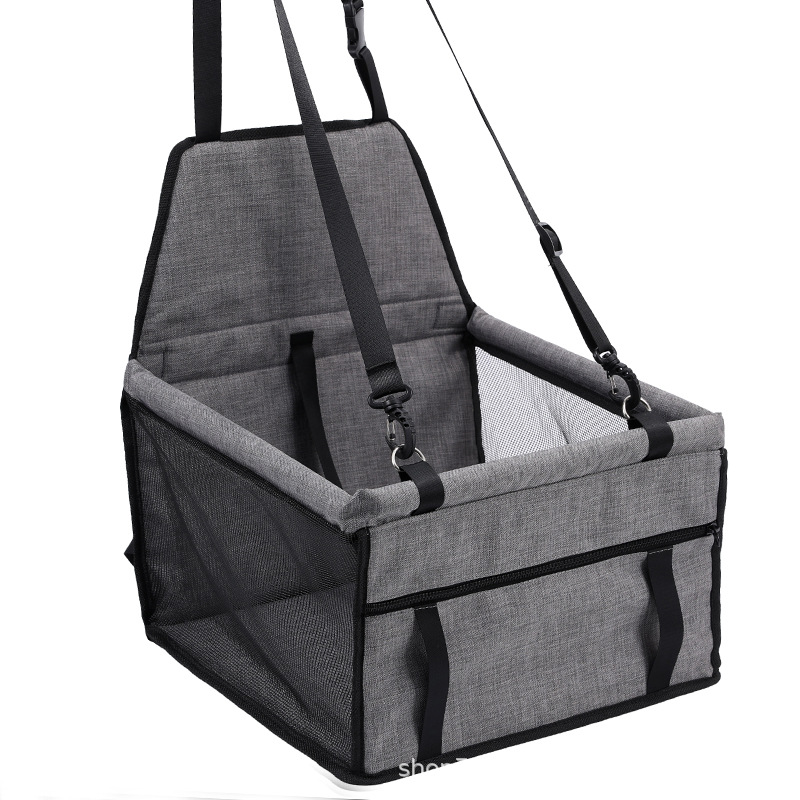The deadline for spending the money in the health accounts is approaching, and people are stretching the definition of eligible expenses.
Send any friend a story Pet Cages Carriers

As a subscriber, you have 10 gift articles to give each month. Anyone can read what you share.
Ron Lieber has maxed out his flexible spending account for over a decade and has definitely used it for massage therapy.
Not long ago, I walked by a local optometrist’s office, and there in the window was a come-on to tax nerds and people who needed to get thisclose to see the sign in the first place. “We accept FLEX SPENDING for FUTURE CREDIT.”
There was just one problem with the wording: That’s not how health care flexible spending accounts are supposed to work.
You can’t blame eye specialists and others for trying, though. Each year at this time, health practitioners and retailers eagerly vie to help you drain every last dollar from your flexible spending account. That’s because you need to spend that money within a certain period or you will lose it, and often that period falls at the end of the calendar year.
You’re supposed to use the money for only health-related services and products. But that category is so large and its boundaries are so porous (though the Internal Revenue Service gamely tries to lay much of it out in Publication 502) that clever practitioners and their patients sometimes stretch the definition of eligible expenses, going to the breaking point and beyond.
So here are some accounts of how far they try to push the limits, and let these tales serve as a reminder of what may or may not work.
But first, a brief review session. Health care flexible spending accounts (F.S.A.s) are a benefit offered by employers. They allow you to set aside money from your paycheck without paying federal income taxes and to use it later for eligible health expenses that your regular insurance does not cover. Starting next year, the maximum amount you can set aside will be $3,050.
Employers don’t have to offer these accounts, and not every one does. Moreover, they have some discretion over the expenses they will allow.
The biggest catch, however, is one that applies to all account holders. You need to spend the money within a certain period — usually 12 months, though there are rules that may allow you to carry a limited amount of money over to the next year.
Still, it’s possible to forfeit a four-figure amount if you’re not careful. Hence, this end-of-year binge, which can include innocent (or not so innocent) attempts like the ones that follow.
There are many little-known, rule-monitoring companies that administer F.S.A. accounts for employers. These third-party administrators have seen a lot, including plenty of receipts for vibrators of all sorts.
Perhaps some of the confusion here comes from the fact that expensive massage devices could be eligible, according to Hilarie Aitken, chief executive of one of the administrators, Navia Benefit Solutions in Renton, Wash. That said, you may need what’s known as a letter of medical necessity (L.M.N.) from a practitioner that explains what ails you and how one of these devices will help.
KNEE SURGERY, CAT: NOT THIS TIME
A request arrived not long ago for some joint repair reimbursement.
Benefit Extras, an administrator in Lakeville, Minn., received a receipt stapled onto a claim form. The account holder listed a provider’s name, date, procedure and cost. It was only when the administrator removed the staple that someone noticed a notation underneath indicating that the operation took place at a veterinary clinic.
“We went back and asked who had the knee surgery,” said Chris Erickson, the founder of Benefit Extras. “Had they been able to say that it had been performed on a taxpayer, we would have paid it.”
But it wasn’t, so they didn’t.
EMOTIONAL SUPPORT CAT (SINGULAR): YES
Ms. Erickson also regaled me with a tale of a $300 cat. It passed muster, eventually.
At first, the company provisionally rejected reimbursement and asked for an L.M.N. Back came the doctor’s note, describing the patient. “She is diagnosed with generalized anxiety disorder, panic attacks and recurrent major depressive disorder, in partial remission. She would benefit from having a companion animal (cat) in her residence.”
This was enough. The cat’s needs — like food and veterinarian visits — are also F.S.A.-eligible. The cat’s wants, however — say a scratching post — are not.
The account holder had the temerity to request reimbursement for two cats, it turns out. Ms. Erickson’s firm decided that one was enough.
“We’ve had one instance of someone trying to put through a cruise,” said Chris Byrd, senior vice president at WEX, a financial technology company in Portland, Maine, that does some benefits administration work. “That no doubt was thought to be therapeutic, emotionally or psychologically.”
If you bother some mental health professionals enough, they just may write you an L.M.N. for a trip. Ms. Erickson has seen one, too. “I did send that one to the I.R.S.,” she said. “They basically said, ‘No, there are more cost-effective ways to reduce stress.’”
The argument here is that you need it to alleviate severe allergies. But for this to get over the bar with Ms. Erickson, you’d need to prove that an upgraded machine had some magic dust zapper that did not exist in other appliances.
Then maybe, just maybe, you could put in for the difference between the price of the humdrum machine and the price of the dandier dander remover. No one has successfully put in for this sort of reimbursement yet.
Travels through the metaverse are not yet tax privileged.
Mr. Byrd scratched his head when someone tried to get reimbursement for virtual reality goggles. “I’m not sure exactly what the rationale was,” he said. “You do see ads for Oculus where people are working out.”
Still, gym gear or health club memberships are generally not reimbursable unless you have a quite specific L.M.N. Mr. Byrd’s company rejected the request.
A DOZEN READING GLASSES: POSSIBLY
Attempts at stockpiling are common in this season of spending, but you can purchase a “reasonable” number of eligible items without running afoul of the regulations. That word, however, causes no end of hand-wringing by administrators and their benefits lawyers.
“We had a claim with a dozen or so pairs of reading glasses, and we did go back on that one,” Ms. Erickson said. “The account holder was able to say that they had two houses, a couple of boats, a car.” And that was enough for approval of the expense.
As for my optometrist neighbor, that window sign’s wording is merely imprecise, not an inducement to cheat. Once you enter the shop, you can have a diabetic retina analysis or pick up some spiffy prescription Ray-Bans. But you are not, in fact, supposed to be able to buy a gift certificate with your F.S.A. money to use for services or goods during the next year of your benefits plan.
According to John R. Hickman, a lawyer and benefits expert at Alston & Bird in Atlanta, the shop is doing things correctly once people come into the store. A provider is supposed to render the services during the actual period that you’ve set aside money for. (There can be a limited exception for prepaid orthodontic work.)
But somewhere out there are other window signs — and the people who write and read them — that push the boundaries. And as the year, or any grace period, draws to a close, they will inevitably step over the line.

Pet Needle Feeder “I think a lot of this is desperation that comes from lack of knowledge or confusion,” Mr. Byrd said. “But you can’t blame people for trying.”